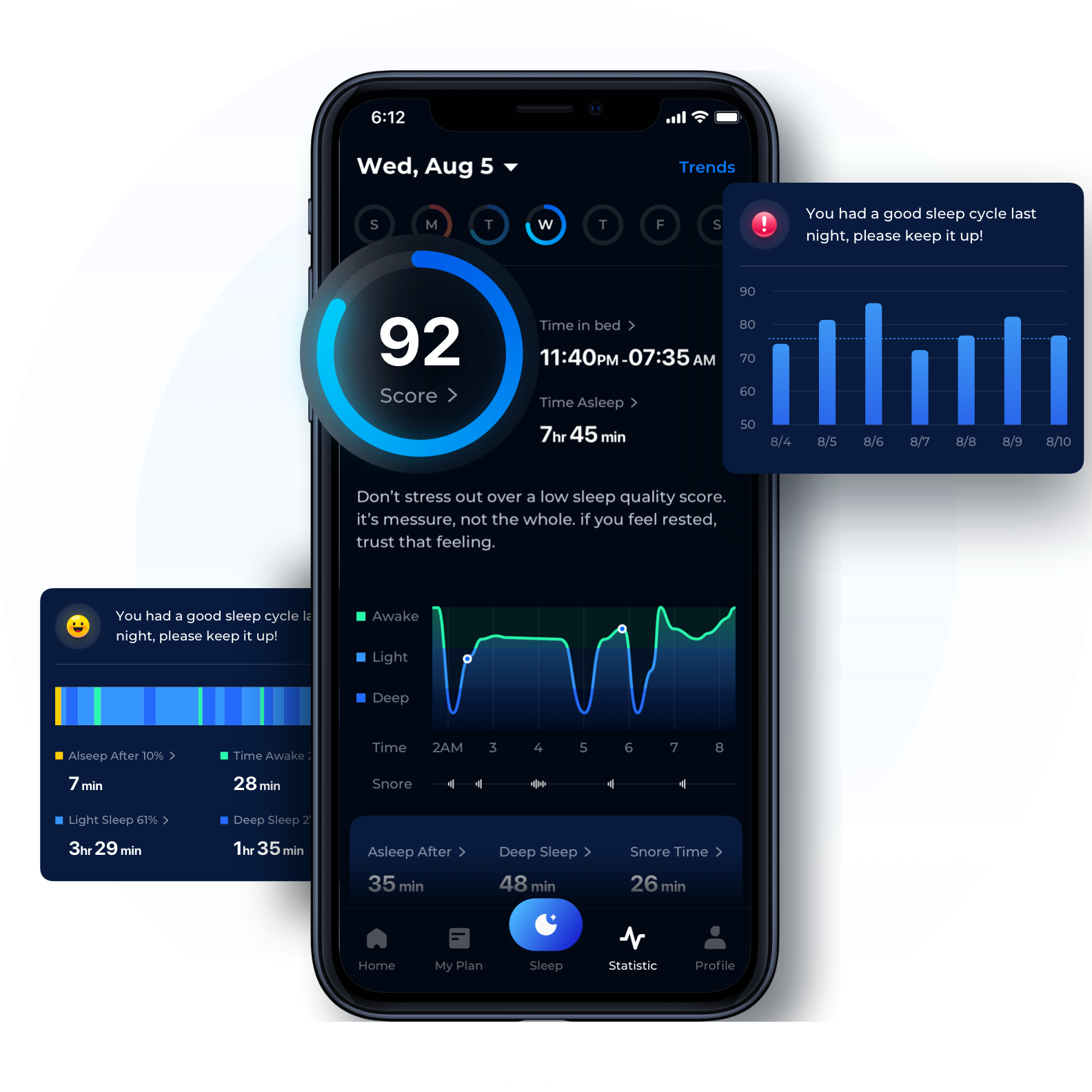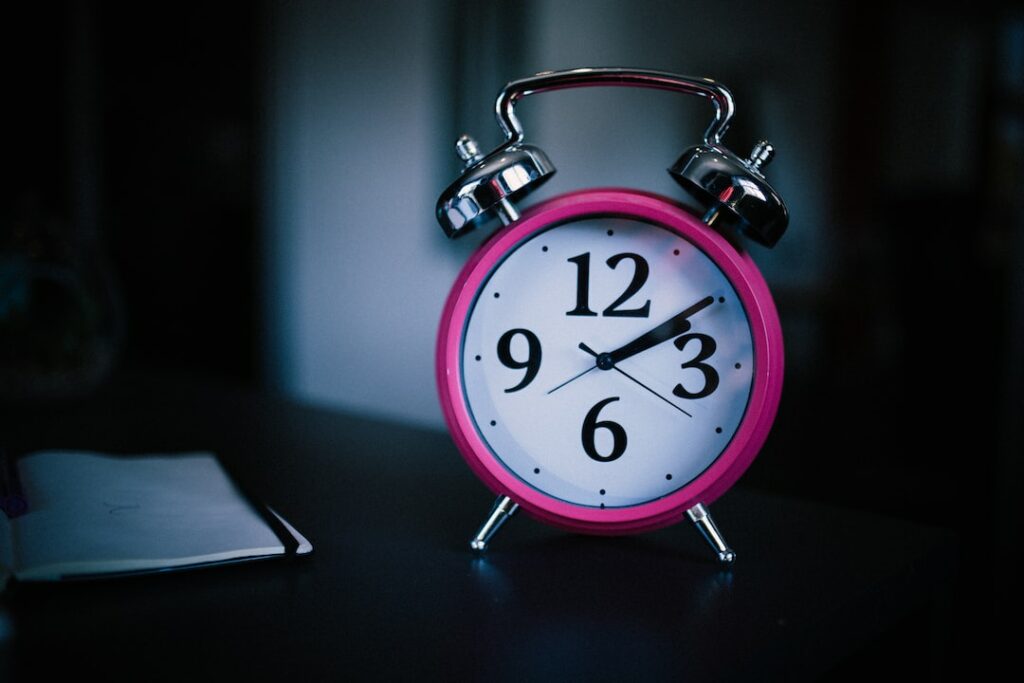


Do you want to know what makes a good sleep score?
In this article, we’ll explore the factors that contribute to a high sleep score and how it can impact your overall well-being. Achieving an excellent score between 90-100 can bring numerous benefits to your health.

Your sleep score is a measure of how well you’re sleeping and how it affects your overall health. It takes into account factors such as sleep quality, which represents how you feel after waking up.
Using tracker devices like Fitbit can help you track your sleep and provide valuable insights. You can also control your sleep score, how much time you spent asleep, and accurate sleep cycle from your smartphone with apps like ShutEye®. You can precisely monitor and improve the quality of sleep.
It’s important to prioritize healthy sleep habits, such as maintaining a consistent sleep routine and getting enough sleep each night.
When considering factors influencing your sleep fitness score, it’s important to understand how sleep quality, sleep routine, sleep time, environmental factors, and mental state can all play a role in determining your overall sleep health.
Sleep quality refers to how restful and rejuvenating your sleep is, while sleep routine measures the consistency and hygiene of your sleep habits.
Time slept refers to the time you actually sleep each night to meet your individual sleep needs. It’s not the time you lay awake in bed, only the slumber itself.
Environmental factors, such as the comfort of your mattress and the control of light exposure, can also impact your sleep fitness.
Additionally, your mental state and relaxation practices, like meditation, can affect your sleep score.
Achieving an excellent sleep fitness score requires a combination of lifestyle changes and sleep-promoting habits.
To start, focus on controlling the temperature of your sleep environment. Sleeping in a cooler room can improve sleep quality.
It’s also important to set the right sleep environment by reducing exposure to blue light from screens and ensuring you have a good mattress.
Before sleep, try to disconnect your mind through relaxation practices like meditation or writing a to-do list.
Regular exercise during the day can help regulate body temperature and establish a consistent sleep routine.
Lastly, maintaining a consistent bedtime and wake-up time is crucial for supporting a healthy circadian rhythm.
Keeping a consistent bedtime and wake-up time is key to achieving optimal sleep fitness. Consistency in your sleep schedule helps regulate your body’s internal clock, ensuring that you get the right amount of sleep at the right times.
Here are four important factors to consider for consistency and sleep duration in order to improve your sleep score and feel well-rested:
1. Stick to a regular sleep schedule: Going to bed and waking up at the same time every day, even on weekends, helps to establish a healthy circadian rhythm.
2. Prioritize sleep duration: Adults need from 7 to 9 hours of sleep each night, as this is the recommended sleep opportunity window for adults. Getting enough sleep is crucial for optimal sleep fitness.
3. Avoid long work hours and sleeping in on weekends: Maintaining your sleep schedule throughout the week, including weekends, helps to regulate your body’s internal clock and promotes better sleep quality.
4. Cut back on stimulants and avoid late-night caffeine: Limit your intake of nicotine and alcohol before bed, as they can disrupt your sleep. While coffee consumption within four hours of bedtime may not significantly affect sleep difficulties, it’s best to avoid it to promote restful sleep.

To achieve a higher sleep fitness score, you should prioritize consistent sleep duration and establish a regular sleep schedule. Consistency in bedtime and wake-up time improves sleep efficiency and quality. Avoiding long work hours and sleeping in on weekends helps maintain a healthy circadian rhythm.
Getting enough sleep is crucial for sleep fitness, with the recommended sleep opportunity window of 7 to 9 hours for adults. Cutting back on stimulants like nicotine and alcohol before bed promotes restful sleep. Coffee consumption within four hours of bedtime may not significantly affect sleep difficulties.
By following these tips, you can improve your sleep fitness score and enhance your overall sleep health.
Simple Tips For Perfect Sleep Score
To understand the significance of sleep debt as a sleep score, you need to recognize how it directly affects your overall sleep health and well-being. Here are four important points to consider:
1. Sleep debt is the only measurement that matters in determining your sleep score. It’s derived from the two-process model of sleep regulation and is based on well-established scientific evidence.
2. Sleep debt is the total time of missed sleep in the past 14 days relative to your sleep needs. Consistently meeting your sleep needs is important for long-term health and performance.
4. Sleep debt directly impacts your energy levels and overall well-being. By tracking and understanding your sleep debt, you can make informed decisions and take steps to prioritize quality sleep.
Avoid relying solely on sleep quality metrics, as they may not accurately determine your individual sleep score; instead, focus on sleep debt to better understand how you feel and function during the day. Sleep quality metrics lack consensus in the field of sleep science and may not accurately reflect your unique sleep needs.
Here’s why sleep debt is a more reliable metric for determining your sleep score:
1. Fall asleep: Sleep debt takes into account the amount of missed sleep in the past 14 days relative to your sleep need, giving you a better understanding of how much sleep you actually require.
2. Heart rate: Sleep quality metrics may not consider heart rate, which can indicate overall health and sleep stages. Tracking heart rate during sleep can provide valuable insights into your sleep quality.
3. Sleep stage: Sleep debt focuses on overall sleep duration, while sleep quality metrics may prioritize specific sleep stages. Understanding your sleep duration is crucial for maintaining good sleep health.
4. Hours of sleep: Sleep debt directly impacts energy levels and overall well-being. By prioritizing sleep debt, you can ensure that you’re getting enough sleep to function at your best during the day and maintain your overall health.
So, now that you know what makes a good sleep score, it’s time to take action and prioritize your sleep health.
By focusing on factors like sleep quality, routine, duration, and environmental factors, you can improve your sleep fitness score and reap the benefits of better sleep.
Centers for Disease Control and Prevention (2022) How Much Sleep Do I Need? [online]. Available at: https://www.cdc.gov/sleep/about/?CDC_AAref_Val=https://www.cdc.gov/sleep/about_sleep/how_much_sleep.html
Newsom, R. (2024) Sleep Debt: The Hidden Cost of Insufficient Rest [online]. Available at: https://www.sleepfoundation.org/how-sleep-works/sleep-debt-and-catch-up-sleep